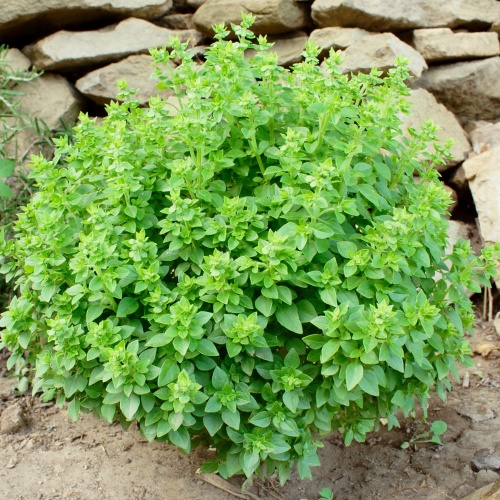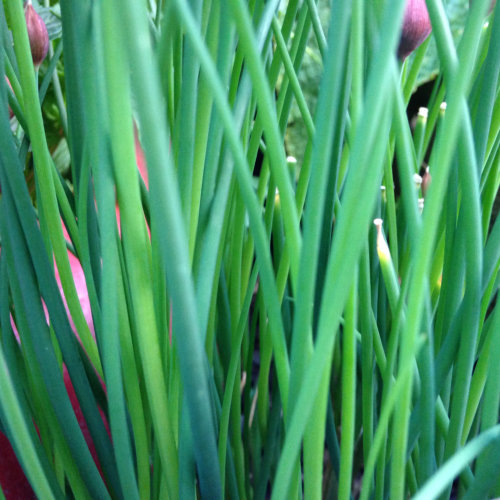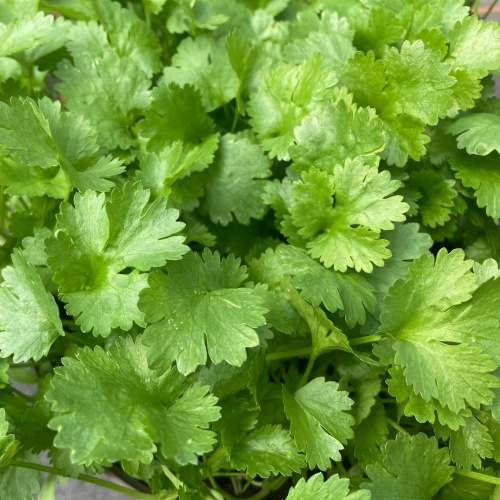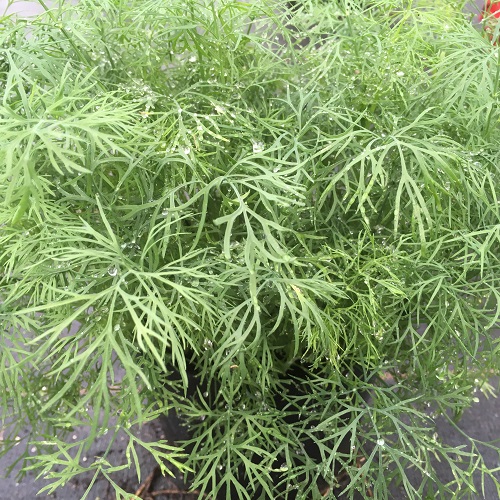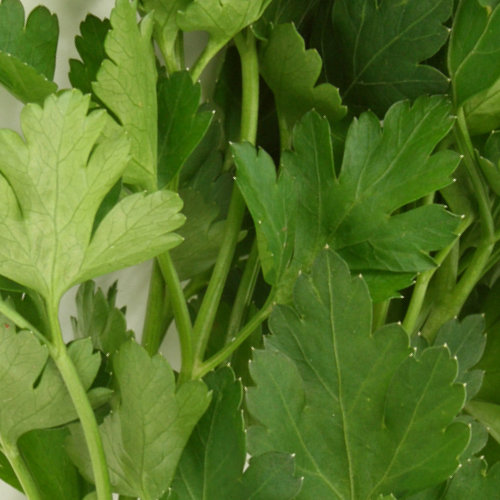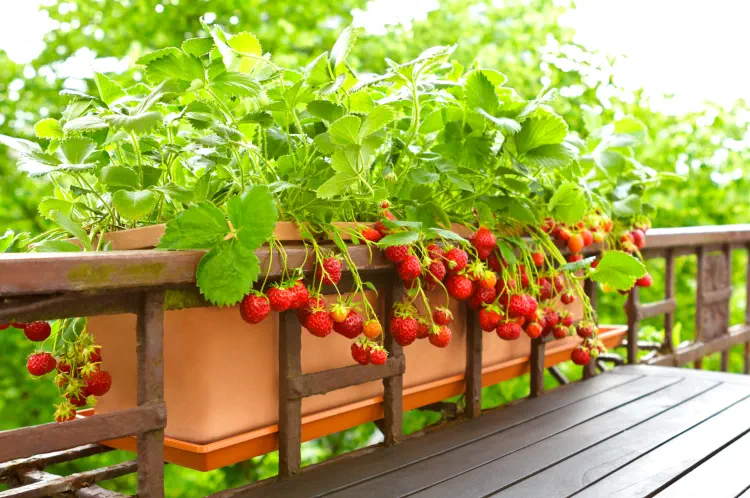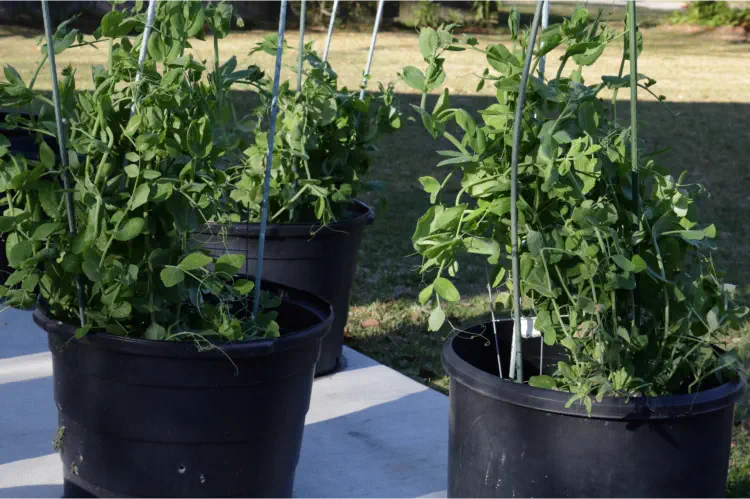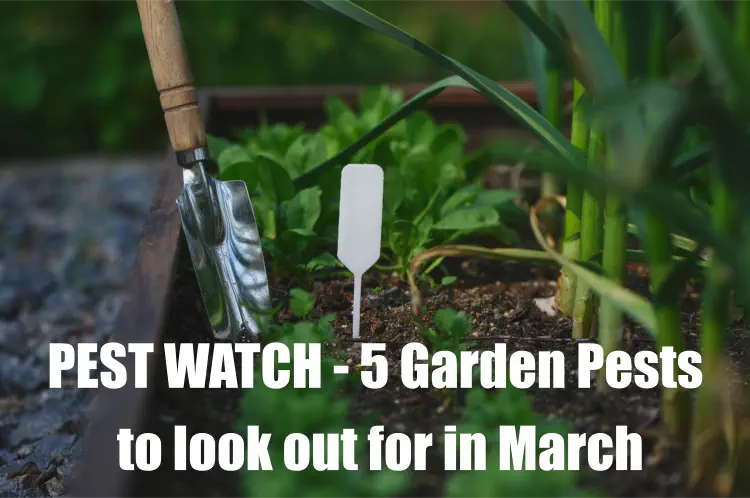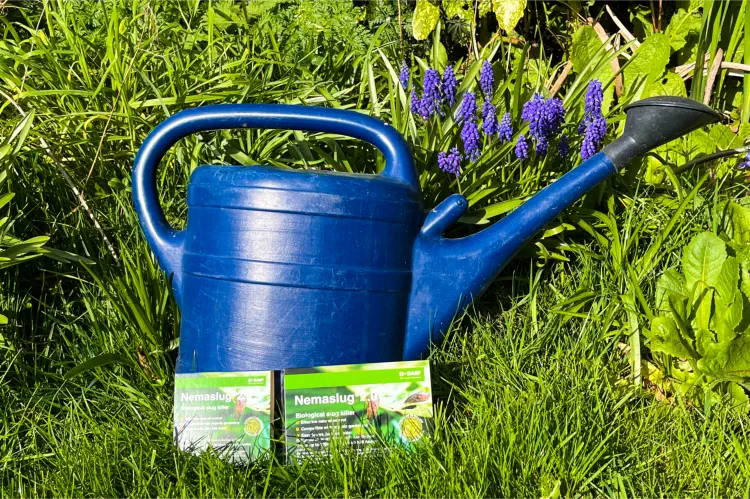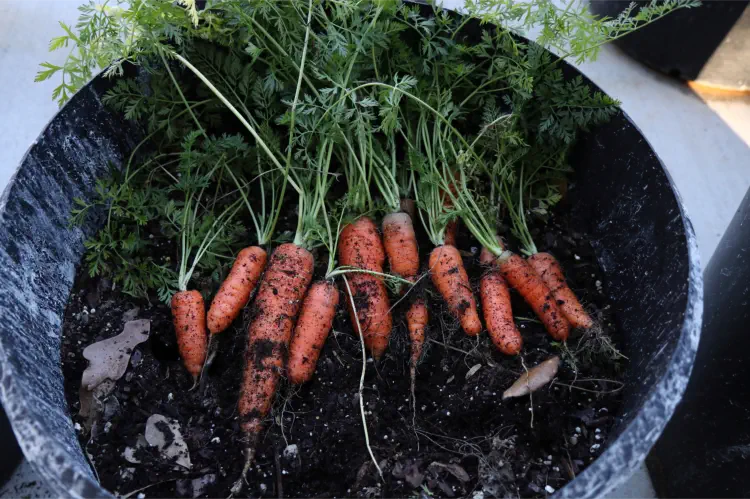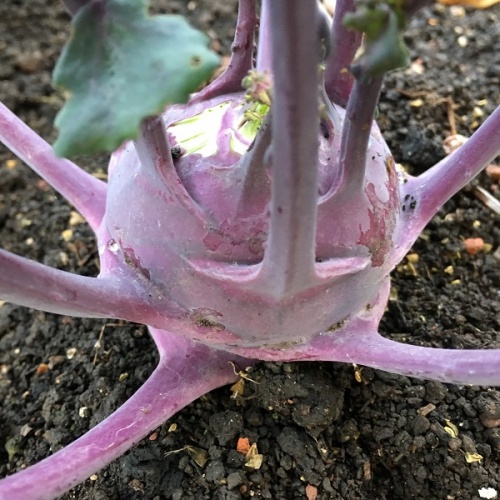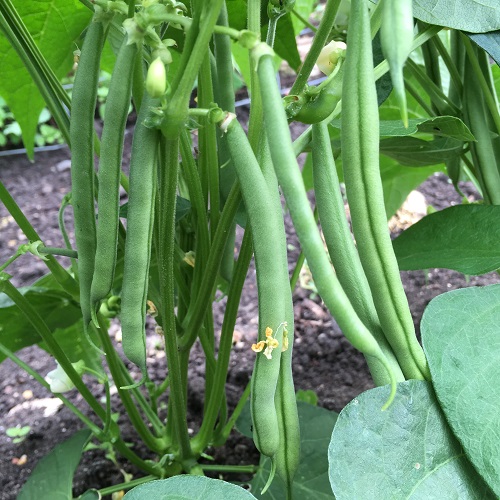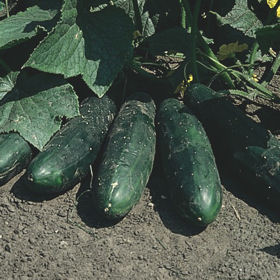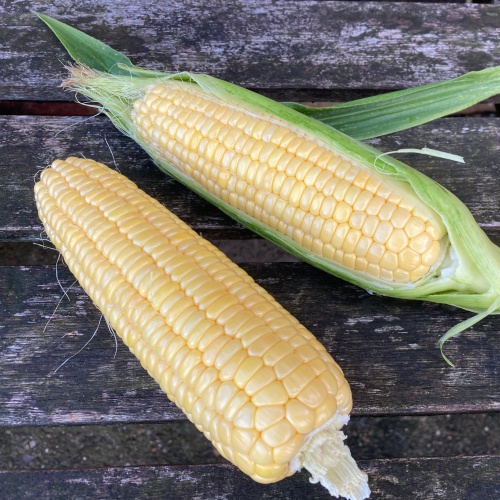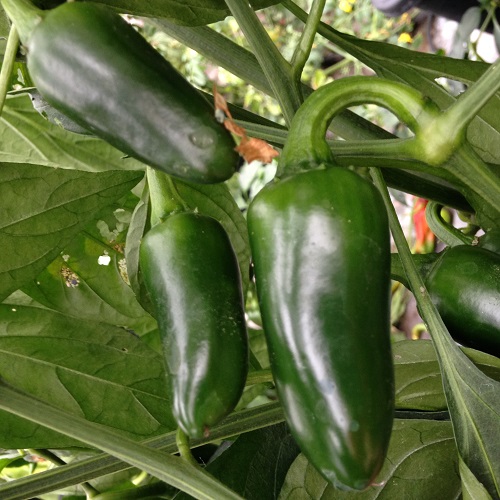As spring unfolds and the garden bursts into life, May heralds a time of vibrant growth and abundant blooms. However, amidst the verdant splendor, gardeners must remain vigilant against the resurgence of common pests eager to feast on tender foliage and burgeoning crops.
Savour the Flavour: Growing Herbs On the Kitchen Windowsill
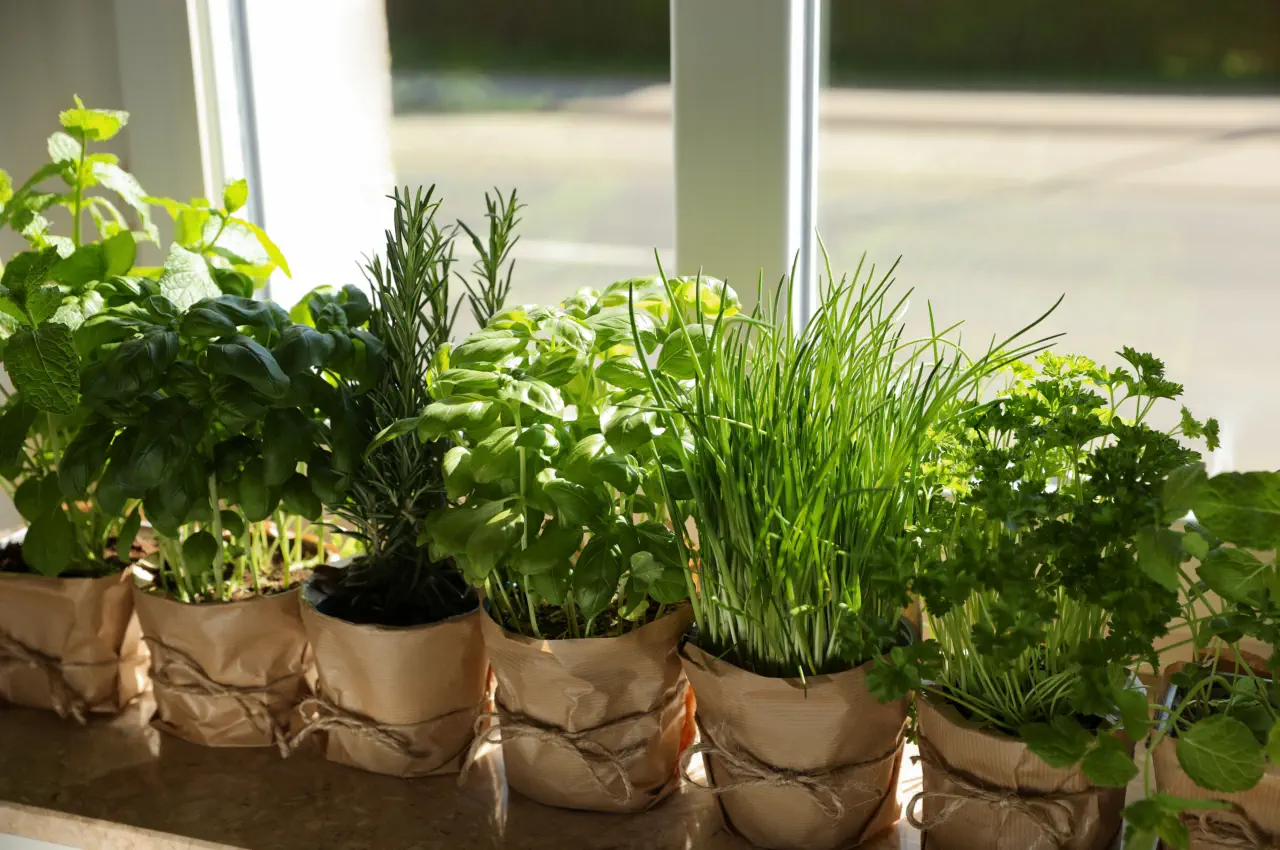
When it comes to creating a successful windowsill herb garden, the first step is choosing the right herbs. Opt for varieties that thrive in indoor conditions, such as basil, parsley, mint, chives, and thyme. Consider your culinary preferences, and grow what you will use in the kitchen, and consider the amount of sunlight your windowsill receives to make informed choices.
Setting Up Your Windowsill Herb Garden
Light and Placement
Herbs are sun-loving plants, and providing them with the right amount of light is crucial for their growth and flavour development. Aim for at least 6 hours of direct sunlight daily. If you have a south-facing window, that's ideal, as it receives the most sunlight throughout the day. However, if your windowsill doesn't get sufficient sunlight, you can supplement it with artificial light sources, such as fluorescent or LED grow lights. Place the pots close to the light source and adjust the height as the herbs grow.
Rotate your pots regularly to ensure that all sides of the plants receive adequate sunlight. This practice helps prevent the herbs from leaning or stretching towards the light source, promoting even and robust growth. Observing the behavior of your herbs will guide you in finding the optimal placement for each type.
Containers and Soil
Choosing the right containers is vital for the health of your herbs. Opt for pots or containers with drainage holes at the bottom to prevent water from accumulating and causing root rot. The size of the pots depends on the specific needs of each herb; larger pots are suitable for herbs that grow larger or have deeper root systems.
Select a well-draining potting mix to ensure proper water drainage. Be mindful of the material of your containers; clay pots may dry out more quickly than plastic ones, so adjust your watering routine accordingly.
Arrange your pots on the windowsill to maximize space and sunlight exposure, ensuring that each herb has enough space for growth without overshadowing others. This arrangement not only optimizes sunlight but also creates an aesthetically pleasing herb garden display.
Watering and Care
Herbs have specific watering needs, and striking the right balance is crucial for their well-being. While herbs like to stay consistently moist, they don't tolerate waterlogged conditions. Water your herbs when the top inch of the soil feels dry to the touch. This prevents overwatering and ensures that the roots receive adequate oxygen.
Regular pruning is essential for maintaining healthy and bushy herb plants. Pinching off the tips of the herbs encourages lateral growth, resulting in a fuller and more robust plant. Pruning also prevents the herbs from becoming leggy and promotes the development of fresh leaves, which are rich in essential oils and flavors.
Keep a watchful eye for any signs of distress in your herbs. Remove any dead or yellowing leaves promptly to prevent the spread of diseases and maintain the overall vitality of the plants. Regular care and attention to your windowsill herb garden will reward you with a constant supply of fresh, aromatic herbs for your culinary adventures.
Best Herbs to Grow from Seeds:
Best Coriander for growing in Pots and Containers.....
Av. Packet Contents : 300 seeds
Often used in curries, bread, soup and salad dressings
Av. Packet Contents : 300 seeds
Seeding and Growing Herbs in Small Pots on Your Windowsill
1. Basil:
- Seeding: Start basil from seeds or purchase young plants. Fill small pots with well-draining soil, plant the seeds or seedlings, and water lightly.
- Growing: Place the pots in a sunny location, rotating them to ensure even growth. Keep the soil consistently moist but not waterlogged. Pinch back the tips regularly to encourage bushier growth.
2. Parsley:
- Seeding: Parsley seeds can take a while to germinate, so be patient. Sow seeds in small pots with moist soil and cover them lightly. Place in indirect sunlight.
- Growing: Once seedlings emerge, move the pots to a sunny windowsill. Keep the soil consistently moist, and thin out weaker seedlings as they grow. Parsley benefits from occasional fertilization.
3. Mint
- Seeding: Mint is often propagated from cuttings or purchased as young plants. Plant cuttings or small mint plants in small pots with well-draining soil.
- Growing: Mint thrives in bright, indirect light. Water when the top inch of soil feels dry. Consider planting mint in its own pot, as it tends to spread rapidly.
4. Chives:
- Seeding: Chives can be grown from seeds or purchased as small plants. Plant seeds or seedlings in small pots with well-draining soil.
- Growing: Place the pots in a sunny location. Water when the soil is dry to the touch. Chives are forgiving and low-maintenance; they'll thrive with minimal care.
5. Thyme:
- Seeding: Start thyme from seeds or purchase young plants. Plant seeds or seedlings in small pots with well-draining soil.
- Growing: Thyme prefers full sunlight. Water when the soil is dry, and avoid overwatering. Prune the tips regularly to maintain a bushy shape.
6. Rosemary:
- Seeding: Rosemary is often purchased as a small plant. Transplant it into a small pot with well-draining soil.
- Growing: Place the pot in a sunny spot. Water when the top inch of soil feels dry. Prune regularly to control its size and encourage branching.
7. Oregano:
- Seeding: Oregano can be started from seeds or purchased as young plants. Plant seeds or seedlings in small pots with well-draining soil.
- Growing: Provide plenty of sunlight. Water when the soil is dry. Trim the plant regularly to maintain a compact shape and encourage new growth.
8. Cilantro (Coriander):
- Seeding: Cilantro is best grown from seeds. Sow seeds directly in small pots with well-draining soil.
- Growing: Place the pots in a bright, indirect light location. Keep the soil consistently moist. Successive plantings every few weeks ensure a continuous supply.
9. Dill:
- Seeding: Dill is grown from seeds. Sow seeds directly in small pots with well-draining soil.
- Growing: Provide full sun for optimal growth. Water when the soil is dry. Pinch off flowers to prolong the leaf production.
10. Lavender:
- Seeding: Lavender can be started from seeds or purchased as small plants. Plant seeds or seedlings in small pots with well-draining soil.
- Growing: Lavender thrives in full sunlight. Water sparingly to prevent root rot. Prune after flowering to encourage bushiness.
Remember to label each pot to easily identify the herbs, and enjoy watching your kitchen windowsill transform into a fragrant and flavorful herb garden!
The Culinary Impact of Fresh Herbs
The flavors of dishes can be elevated significantly by incorporating freshly grown herbs. From a handful of basil in a tomato salad to a sprig of rosemary on roasted potatoes, the possibilities are endless. Experiment with different combinations to discover your favorite herb-infused recipes.
Herbal Decor: Enhancing Your Kitchen Aesthetics
A windowsill herb garden not only provides fresh ingredients but also serves as a visually appealing kitchen decor element. Choose pots that complement your kitchen aesthetic, and consider adding decorative elements like small labels or painted stones.
Overcoming Common Challenges
Pest Control
Keep an eye out for pests like aphids, scariad flies, or spider mites. Regularly inspect your herbs and, if needed, use natural remedies as using for food.
Year-Round Herb Gardening: Cultivating a Continuous Harvest
One of the joys of having a windowsill herb garden is the potential for a year-round supply of fresh, flavourful herbs. Here's how you can ensure a continuous harvest throughout the year.
Staggered Plantings
Herbs have different growth rates, maturation times, and lifespans. To maintain a steady rotation of mature plants, stagger your plantings. Instead of sowing all the seeds at once, create a schedule for starting new seeds or transplanting seedlings. This way, you'll always have a mix of young, actively growing plants and mature ones ready for harvest.
For instance, consider planting a batch of basil this week, and in two weeks' time, start a new batch. This intentional timing ensures a continuous supply, as the first batch matures, the second one is well on its way, and you have a new set of seedlings growing.
Succession Planting Tips
Understand Herb Lifecycles: Different herbs have varying lifecycles. Annual herbs like basil and cilantro complete their life cycle in one year, while perennial herbs like thyme and rosemary can live for multiple years. Tailor your planting schedule accordingly.
Plan According to Growing Conditions: Take into account the growth habits and preferred conditions of each herb. Some herbs may thrive in cooler temperatures, while others prefer warmer environments. Adjust your planting schedule to align with the specific needs of each herb.
Consider Indoor Conditions: Indoor gardening allows you to control the environment, but seasonal changes and variations in sunlight can still impact herb growth. Be mindful of these factors and adjust your planting schedule to accommodate any fluctuations.
Maintaining a Steady Rotation
By consistently starting new seeds or propagating cuttings, you create a cyclical pattern of growth within your herb garden. This rotation not only ensures a year-round supply but also helps manage the space on your windowsill effectively. As one set of herbs reaches maturity and is harvested, the next batch steps in to continue the cycle.
Monitoring and Adjusting
Observe the growth patterns of your herbs closely. Adjust your planting schedule based on the performance of each herb. If a particular variety consistently matures faster or slower than expected, adapt your planting times accordingly.
Remember to label your pots or use a system to identify the age of each set of herbs. This organization helps you keep track of which plants are ready for harvest, which ones are still growing, and when it's time to start new seeds.
In summary, year-round herb gardening on your windowsill is achievable with careful planning and a commitment to staggered plantings. Embrace the delightful rhythm of planting, growing, harvesting, and replanting as you cultivate a continuous harvest of fresh, aromatic herbs for your culinary endeavors.
Time to Get Growing....
In conclusion, cultivating a thriving herb garden on your kitchen windowsill is a rewarding and aromatic journey. From selecting the right herbs to mastering the art of preserving their flavors for year-round use, each step contributes to a delightful culinary experience. By embracing strategic approaches like staggered plantings, thoughtful setup, and preservation techniques, you not only enhance your cooking but also create a green oasis within your home.
As you embark on this herbal adventure, remember that your windowsill garden is a dynamic, living entity. Adjustments, experimentation, and attentive care will lead to a flourishing herb haven, bringing the essence of the outdoors into your daily culinary escapades. Whether you're a seasoned gardener or a novice with a passion for fresh flavors, the windowsill herb garden offers an accessible and enjoyable way to connect with nature, even in the heart of your kitchen. Happy gardening and savor the joy of cultivating your own homegrown herbs!
Questions and Answers
Herbs and Windowsill Gardening:
Q: Which herbs are suitable for growing on a kitchen windowsill?
A: Basil, parsley, mint, chives, thyme, rosemary, oregano, cilantro, dill, and lavender are excellent choices for windowsill herb gardens.
Q: How can I ensure my herbs receive enough sunlight on the windowsill?
A: Place your herb pots in a south-facing window for maximum sunlight exposure. If that's not possible, consider using supplemental grow lights to provide adequate light.
Q: What's the best way to water herbs on a windowsill?
A: Water herbs when the top inch of soil feels dry. Ensure your pots have drainage holes to prevent overwatering, and use well-draining soil.
Setting Up a Windowsill Herb Garden:
Q: Why is it important to rotate herb pots on the windowsill?
A: Rotating pots ensures all sides of the plants receive equal sunlight, preventing uneven growth. It helps maintain the health and balance of your herb garden.
Q: How do I choose the right containers for my windowsill herb garden?
A: Select containers with drainage holes to avoid overwatering. Consider pot size based on herb needs. Plastic or clay pots work well, depending on your watering habits.
Q: Can I use any soil for my windowsill herb garden?
A: Use well-draining soil for your herbs. Best not to use one that may smell the house out though such as manure.
Year-Round Herb Gardening:
Q: What is succession planting, and how does it apply to herb gardening?
A: Succession planting involves staggered planting to ensure a continuous harvest. For herbs, start new seeds or transplant seedlings regularly to maintain a steady rotation.
Q: How do I adapt my herb garden to different seasons indoors?
A: Adjust your planting schedule based on the growing conditions each herb prefers. Some herbs may require more warmth or light during specific seasons.
Q: Is there a specific time of year when it's best to start a new batch of herbs?
A: Start new herb batches based on their natural growing season and your local climate. Indoor gardening allows for flexibility, so you can start new herbs throughout the year.
Preserving Herbs for Later Use:
Q: What's the best way to dry herbs for long-term storage?
A: Herbs can be air-dried by hanging them or dehydrated using a dehydrator. Ensure they are fully dry before storing in airtight containers.
Q: Can I freeze any type of herb, or are there specific ones that freeze well?
A: Most herbs can be frozen. Chop them finely, place in ice cube trays with water or oil, and freeze. Herbs like basil, parsley, and chives freeze particularly well.
Q: How long do herb-infused oils and vinegars last in storage?
A: Herb-infused oils and vinegars can last for several months to a year if stored in a cool, dark place. Discard if you notice any signs of spoilage.
All blog content on this page is copyright of SimplySeed and is not to be reproduced without prior written permission. ©


